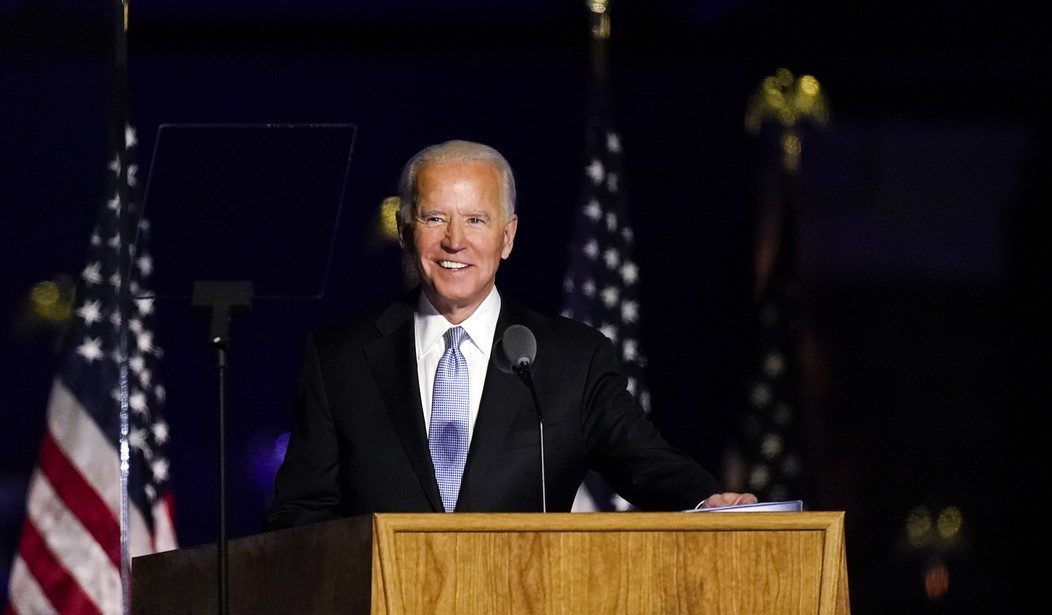Before the end of 2020, Congress passed a $900 billion pandemic relief bill with money for, among other things, schools, hospitals state and local governments, and $600 for almost every American. The economy is in the doldrums thanks to lockdowns and other restrictions by the government on businesses, so it was probably a good thing overall that Congress spent the money.
But before the ink was dry on Donald Trump’s signature, Democrats were calling for more — a lot more. So Biden huddled with his advisors and came up with a proposal that he believed could pass muster in an increasingly skeptical Senate: a $1.9 trillion spendapalooza with money for everyone — even if they don’t need it.
That’s been the problem from the start with these pandemic relief bills. The economic slowdown has hit Americans unevenly. Some people certainly need the help, especially the unemployed and small businesses. But there are others, like myself, who still have a job, thank God, and really didn’t need the help.
Why did Sue and I $3600 in cash when we didn’t need it? Don’t get me wrong. I’m not giving it back and was glad to get it. Who wouldn’t be? But Congress is supposed to be in the business of being fiscally responsible. It is the height of irresponsibility to throw trillions of dollars at the American people and congratulate yourself on being warm and fuzzy and compassionate.
There are some people who could have used more. Others, like myself, less. The irresponsibility lies in the fact that the money wasn’t targeted to those in need. It was politicians buying votes because they were too lazy to figure out who desperately needed assistance and who didn’t.
“Needs testing” is a pain in the ass but it’s responsible governance. And Congress has forgotten how to do that.
Now, Joe Biden, our brand new spender-in-chief, will start his administration off with a “thank you” payment of $1400 for almost everyone who already received $600 this month. He is also proposing reestablishing the extended, expanded, new and improved federal unemployment benefit add-on. Biden wants to extend a weekly benefit of $400 through September. New data shows that 62 percent of the recipients will again be making more money while unemployed than they were as employees.
The last time we came out of a lockdown, companies had a devil of a time getting some of their employees back to work because they were making more sitting at home than they were at the office or the plant. It’s called an “employment disincentive” and even an economic dunce of a Democrat should have been able to see that.
Certainly, there were some employees who feared going back to work because of the coronavirus. But when your sit-at-home pay exceeds your go-to-work pay, why take the risk?
Biden also wants tens of billions for state and local governments, ostensibly, to close any holes that opened in their budgets due to lost revenue. But how great is that need?
The Cato Institute’s Chris Edwards told me that total state and local government tax revenues “fell just $22 billion from the first to the second quarter of 2020 and then bounced back strongly in the third quarter. Meanwhile, federal aid to state-local governments soared $194 billion in the second quarter as a result of federal relief bills.” Federal relief has more than refilled state and local coffers, so there is no need for $170 billion more in state education subsidies proposed by the Biden administration.
Republicans, who don’t have a leg to stand on when it comes to complaining about the deficit, nevertheless have been roused from the slumber and will apparently fight this boondoggle.
Republicans who would be critical to get to the finish line said they’re open to additional money to speed up distribution of the Covid-19 vaccine, but balked at Biden’s overall price tag. Some called on Biden to pare back the plan while others suggested waiting a few months to see if the economic need persists.
Sen. Susan Collins, R-Maine, one of the most moderate Republicans, said she’s “sympathetic” to boosting vaccine funds but doesn’t see the justification for a bill “that is so big.”
“It’s hard for me to see when we just passed $900 billion of assistance why we would have a package that big,” Collins told reporters Thursday. “Maybe a couple of months from now, the needs will be evident and we will need to do something significant, but I’m not seeing it right now.”
Biden and the Democrats need to strike now with one primal surge before the vaccine ruins everything for them and the crisis has passed. They know the clock is ticking. A lot of Biden’s campaign promises are tied up in the stimulus bill: a $15 minimum wage, money for teachers, money for public union employees — and numerous little changes in law that fulfill his promises to women and other Democratic constituency groups clamoring to be compensated for supporting Biden for president.
Biden could still pass his bill by employing the little-used “reconciliation” process that would require only a simple majority. But Biden can only use that process once a year and his legislation wish list is long.
But as Democrats are fond of saying, “Never let a crisis go to waste.” After spending nearly $6 trillion over the last year on pandemic relief, it doesn’t sound like Congress is wasting the opportunity at all.










Join the conversation as a VIP Member